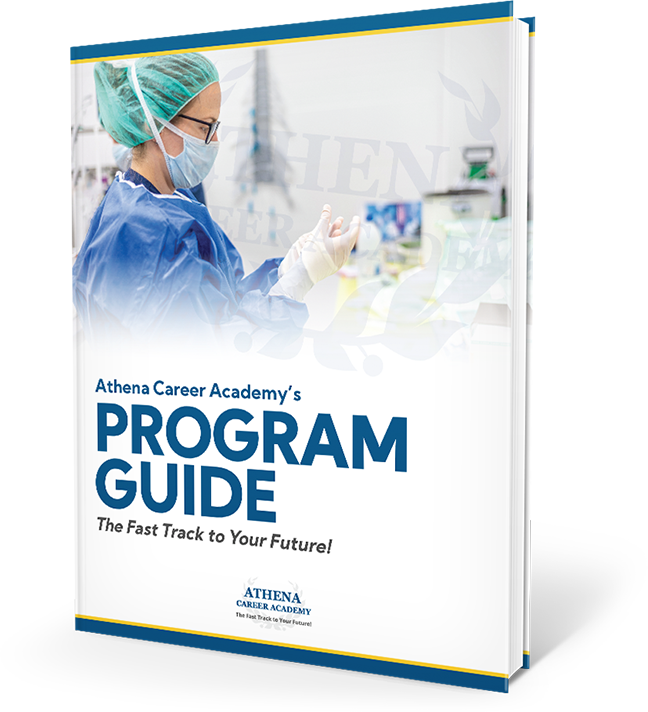FAQs About a Career in a Medical Assisting
Posted On Jan 16, 2024
Are you dreaming of becoming a medical assistant? Beginning your healthcare career journey can be exciting and rewarding. However, like any career path, it comes with questions and uncertainties.
- Is medical assisting the right career for you?
- Will you enjoy working in healthcare?
- Will there be opportunities for advancement?
To help guide you through the decision-making process, it’s beneficial to explore some frequently asked questions about this rewarding career.

What Does a Medical Assistant Do?
Medical assistants are vital to any healthcare practice as they perform administrative and clinical duties. On the administrative side, they manage patient records, schedule appointments, and handle billing. On the clinical side, medical assistants take patients' vital signs, assist with examinations, and prepare treatment rooms between appointments.
How Do You Become a Medical Assistant?
To become a medical assistant, a high school diploma or equivalent is necessary. Many aspiring medical assistants also pursue formal training through accredited programs which can lead to better pay and more opportunities for advancement. These programs cover medical terminology, anatomy, and practical skills essential to the role.
Is Certification Necessary?
While not required in every state, earning a certification can enhance employment opportunities and showcase a dedication to the profession. Typical certifications include the Certified Medical Assistant (CMA) and Registered Medical Assistant (RMA), requiring passing an exam. Only students who complete their training through an accredited medical assistant training program are eligible to sit for the exam.
What Skills are Essential for Success?
Qualified medical assistants possess a blend of administrative and clinical skills learned through formal training, but also have key soft skills that contribute to their success. Communication skills, attention to detail, and the ability to multitask are crucial to effectively handling patient interactions and administrative responsibilities.
What is the Job Outlook for Medical Assistants?
According to the Bureau of Labor Statistics (BLS), employment of medical assistants is expected to grow, driven by an increasing demand for healthcare services. The versatile skill set makes them valuable assets in various healthcare settings, contributing to a positive job outlook overall.
Where Do Medical Assistants Work?
Certified medical assistants can find work in various healthcare settings including hospitals, clinics, physician offices, long term care facilities, and specialty practices. The diverse nature of the role allows medical assistants to find ample job opportunities.
What Advancement Opportunities Exist?
While some medical assistants find fulfillment in their roles, others may seek advancement opportunities. With additional experience and education, medical assistants can explore avenues such as office management, healthcare administration, or specialized roles within their field of interest.
How Does a Medical Assistant Interact with Patients?
Patient interaction is a significant aspect of a medical assistant's role. They greet patients, collect medical histories, and explain procedures. Building rapport and ensuring patient comfort are essential for a positive healthcare experience.
What Challenges Might Medical Assistants Face?
Like any profession, medical assisting comes with challenges. These may include managing a fast-paced work environment, adapting to new technologies, and staying updated on the ever-evolving healthcare landscape. Yet these challenges offer opportunities for growth and skill development.
What is the Importance of Professionalism in Medical Assisting?
Professionalism is paramount in healthcare. Medical assistants are often patients' first point of contact, and their demeanor and conduct contribute to the overall patient experience. Maintaining confidentiality, adhering to ethical standards, and exhibiting empathy are integral to MA professionalism.
How Does Technology Impact Medical Assisting?
Medical assistant roles are continually evolving thanks to ongoing advancements in healthcare technology. Electronic health records (EHRs), telemedicine, and diagnostic tools are becoming standard in many healthcare settings. Adapting to and embracing technological changes is crucial to staying current in the field.
What Continuing Education Options are Available for Medical Assistants?
Continuing education allows medical assistants to remain updated on the latest industry trends and expand their skill set. Some pursue additional certifications, while others may opt for advanced degrees or specialized training in phlebotomy or EKG technology.
How Can I Balance Work and Life as a Medical Assistant?
Balancing work and life is a common concern in any profession. Medical assistants can maintain balance by prioritizing self-care, setting boundaries, and effectively managing their time. Establishing a healthy work-life balance contributes to long-term career satisfaction.
Are There Networking Opportunities for Medical Assistants?
Networking is valuable and available in any career. Medical assistants can join professional organizations, attend conferences, and engage with online communities to expand their network, stay informed about industry developments, and connect with peers and mentors.
Why Choose a Career in Medical Assisting?
In conclusion, a career in medical assisting offers a dynamic and fulfilling path in the healthcare industry. By addressing these FAQs, prospective medical assistants can better understand the field and make informed decisions about pursuing this rewarding opportunity. Whether you are at the beginning of your journey or seeking advancement, the role of a medical assistant holds promise for those passionate about positively impacting patient care.
Athena Career Academy's Medical Assisting Program is your gateway to a transformative career if you're ready to make a significant difference in others' lives. Our program seamlessly blends comprehensive knowledge with compassion, equipping you to excel in healthcare. Seize the opportunity to shape a fulfilling future where your impact truly matters.
Join Athena Career Academy now and become part of a community committed to positively influencing the well-being of others. Your rewarding career starts with Athena, empowering you to contribute meaningfully to healthcare. Contact us today to learn more.
Recent Posts
- How Accessibility to Faculty Enhances ECE Degree Program
- Early Childhood Education Courses Lead to Great Teaching Careers
- Insights for Effective Preschool Teaching
- Online vs. In-Person Medical Assistant Training: Which Is Right for You?
- Preschool Teachers Provide Hands-On Learning for Future Innovators
Categories
- Flexible Class Schedule
- Early Childhood Education
- Clinical Medical Assistant
- Medical Assistant
- Accredited
- Medical Assistant Program Toledo, OH.
- MA Program
- ECE
- preschool teacher
- CMA
- Administrative Medical Assistant
- Practical Nursing
- Nursing School
- Nursing
- Early Childhood Education Degree
- LPN to RN
- Certified Medical Assistant
- Early Childhood Educator
- Become a Teacher
- Nursing Career
- RN
- Childcare Teacher
- Nursing School Toledo
- Practical Nurses
- Childcare Director
- Nursing Education
- Registered Nurse
- LPN
- Toledo Ohio Nursing School
- Teaching Degree
- Become a Nurse in 12 Months
- Nursing Career Opportunities
- Nursing School Preparation
- Practical Nursing Jobs
- Medical Coding and Billing
- DayCare Teacher
- Nursing Salaries
- Nursing School Costs
- PN to RN
- Career Training
- Nursing School Tuition
- Nursing School Financial Aid
- Phlebotomist Technician
- Practical Nurse Salaries
- EKG Technician
- nurse burnout
- #nursesunite
- Insider
- Phlebotomy Technician Salary
- Uncategorized
- resume
Contact us
For News, Resources, and Conversations:
Get your FREE 2022 Athena Career Academy Program Guide
The best way to get to know Athena Career Academy is to see what we offer. Download our program guide to learn more. Take the fast track to your future today!
An exciting career can be yours in just one year!
Discover how Athena Career Academy can help you reach your medical career goals fast.
Accrediting Agencies
Athena Career Academy is accredited by the Commission of the Council on Occupational Education. The school is registered with the Ohio Board of Career Colleges and Schools; State of Ohio – School Registration Number – 10-09-1943T and operates under the authority of the Ohio Board of Nursing. Please contact the Student Operations Manager for more information.

